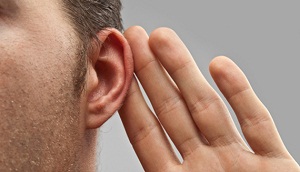Hearing Difficulties
 |
|
More Information |
Veterans who are deployed to areas of combat may experience hearing difficulties. Hearing difficulties are quite common and account for nearly 10 percent of the total number of disabilities among Veterans.
Risk factors for hearing difficulties include:
- Repeated exposure to noise hazards
- Exposure to loud noise such as blast or gunfire
- Ear trauma or injury
- Family history of hearing difficulties
- Certain medications
- Not wearing hearing protection
Hearing difficulties may result in hearing loss or tinnitus which is a ringing noise in the ear. Hearing loss can be temporary or permanent, sudden or gradual. Permanent hearing loss occurs when there is damage to the inner ear or the auditory nerve. This may be caused by exposure to a specific traumatic event or illness, long-term exposure to loud noise, or a hereditary condition.
Temporary hearing loss occurs when sound waves are unable to reach the inner ear for a variety of reasons such as earwax, fluid, or a punctured ear drum. This type of hearing loss can usually be restored by medical treatment or surgery. A common form of hearing loss, presbycusis, comes on gradually as a person ages. Presbycusis commonly affects people over 50.
Common causes of tinnitus include age-related hearing loss, exposure to loud noises, earwax blockage, and a condition called otosclerosis where the ear bones may become stiff. Other less frequent causes include head and neck injuries, atherosclerosis, high blood pressure, medications, Meniere's disease (an inner ear disorder), stress and depression, and head or neck tumors.
It is important to have a hearing test at the beginning of military service and again upon discharge to determine whether hearing loss is attributable to military service.
You can help protect yourself from hearing difficulties by:
- Wearing hearing protection when around noise hazards
- Minimizing your exposure to noisy environments
- Avoiding medications that may have harmful ear effects
- Wearing protective head gear to prevent ear trauma or injury
- Not sticking anything in your ear (i.e. Q-tips)
- Having regular hearing check-ups



















